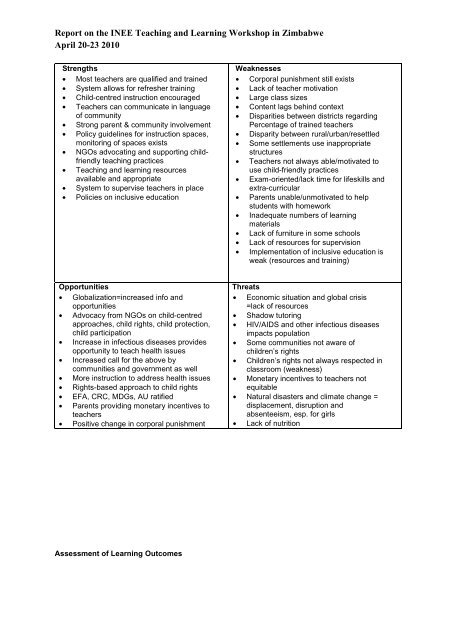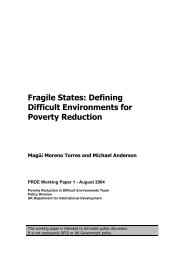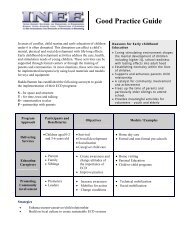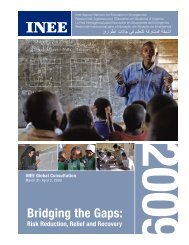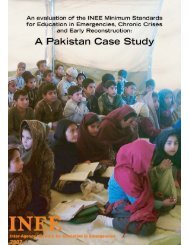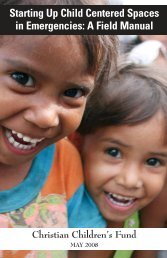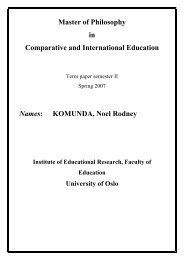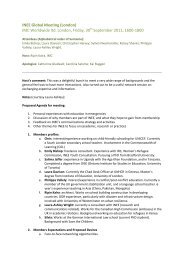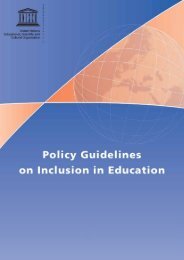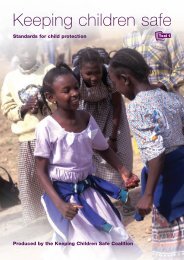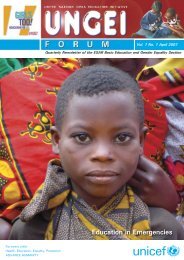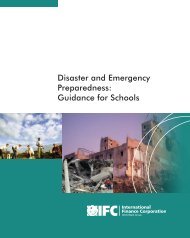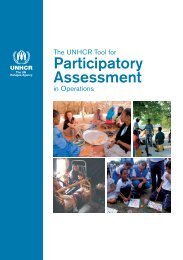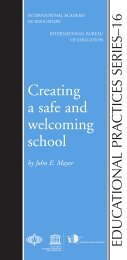Download - INEE
Download - INEE
Download - INEE
You also want an ePaper? Increase the reach of your titles
YUMPU automatically turns print PDFs into web optimized ePapers that Google loves.
Report on the <strong>INEE</strong> Teaching and Learning Workshop in ZimbabweApril 20-23 2010Strengths• Most teachers are qualified and trained• System allows for refresher training• Child-centred instruction encouraged• Teachers can communicate in languageof community• Strong parent & community involvement• Policy guidelines for instruction spaces,monitoring of spaces exists• NGOs advocating and supporting childfriendlyteaching practices• Teaching and learning resourcesavailable and appropriate• System to supervise teachers in place• Policies on inclusive educationWeaknesses• Corporal punishment still exists• Lack of teacher motivation• Large class sizes• Content lags behind context• Disparities between districts regardingPercentage of trained teachers• Disparity between rural/urban/resettled• Some settlements use inappropriatestructures• Teachers not always able/motivated touse child-friendly practices• Exam-oriented/lack time for lifeskills andextra-curricular• Parents unable/unmotivated to helpstudents with homework• Inadequate numbers of learningmaterials• Lack of furniture in some schools• Lack of resources for supervision• Implementation of inclusive education isweak (resources and training)Opportunities• Globalization=increased info andopportunities• Advocacy from NGOs on child-centredapproaches, child rights, child protection,child participation• Increase in infectious diseases providesopportunity to teach health issues• Increased call for the above bycommunities and government as well• More instruction to address health issues• Rights-based approach to child rights• EFA, CRC, MDGs, AU ratified• Parents providing monetary incentives toteachers• Positive change in corporal punishmentThreats• Economic situation and global crisis=lack of resources• Shadow tutoring• HIV/AIDS and other infectious diseasesimpacts population• Some communities not aware ofchildren’s rights• Children’s rights not always respected inclassroom (weakness)• Monetary incentives to teachers notequitable• Natural disasters and climate change =displacement, disruption andabsenteeism, esp. for girls• Lack of nutritionAssessment of Learning Outcomes


